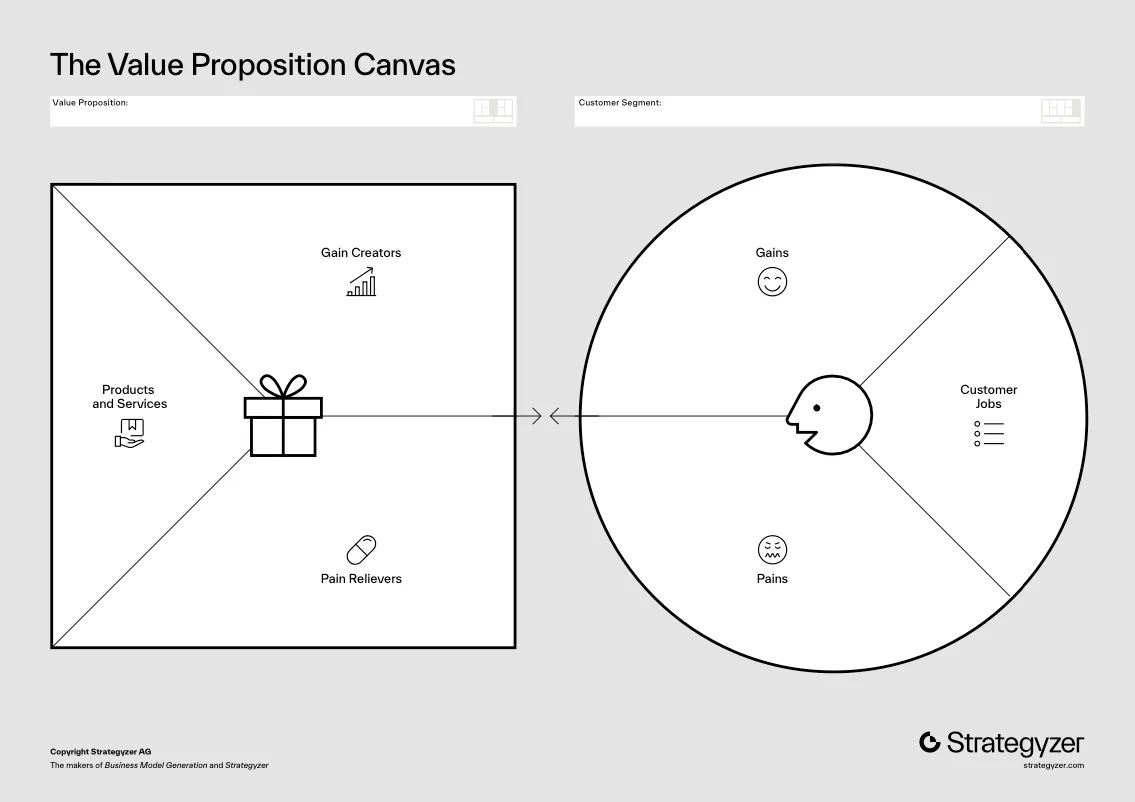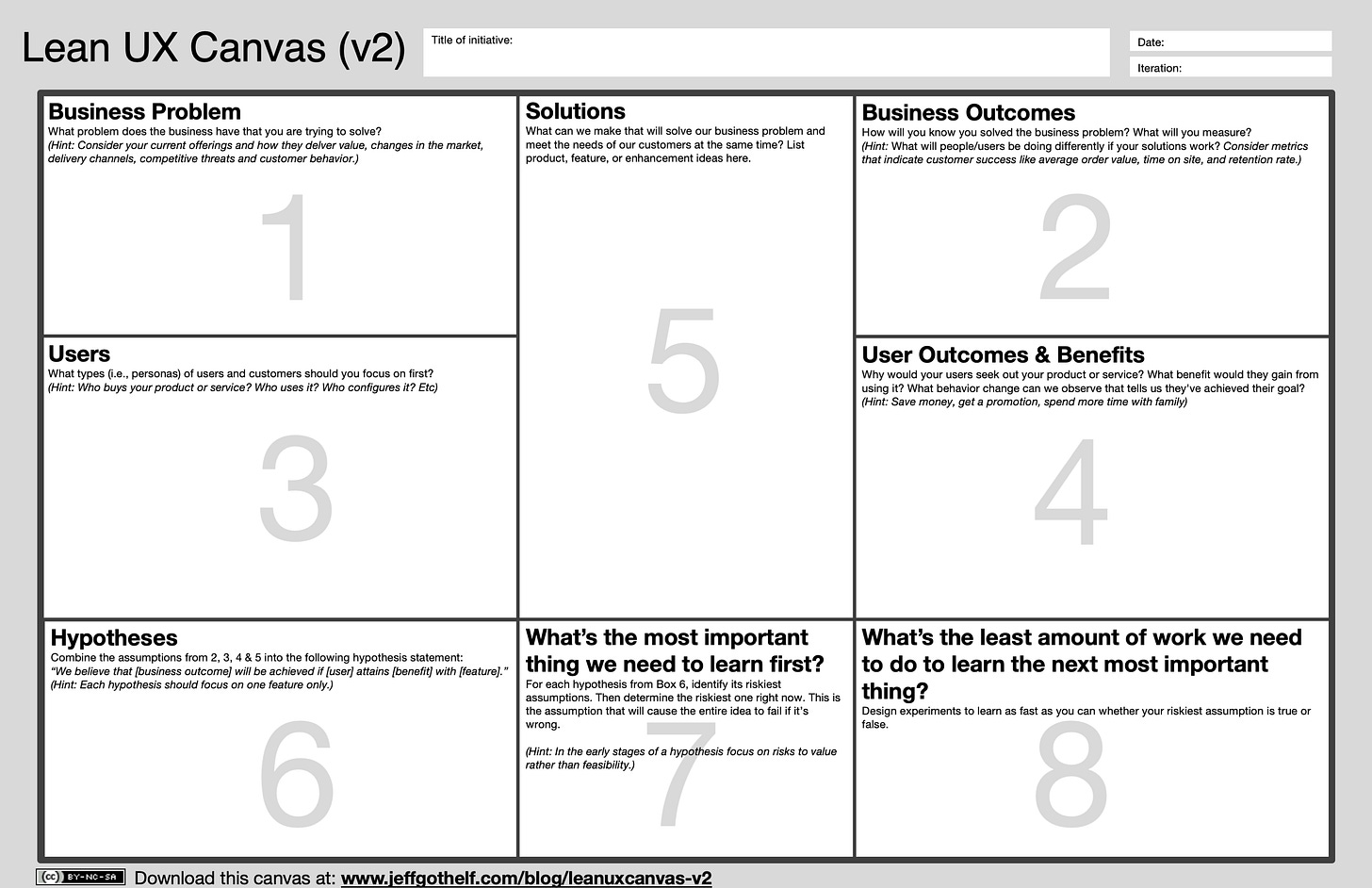Design Insights & Updates: Podcasts, Books, and Templates for UX Designers
Discover key resources and tools in product design and UX. Learn about upcoming podcasts with industry experts, a curated book collection to boost your skills, and effective design canvases to refine
Welcome to this week's Cristian Talks Product Design newsletter! Today officially marks my 12th newsletter post. That's right, what started as a curious hobby has grown into something truly rewarding. I know we're still at the beginning of this journey, but I feel incredibly grateful for how it has evolved so far, and that’s all thanks to you. Before diving in, I want to give a big shoutout to everyone who reached out about the brand redesign—even as an experiment, I’m thrilled it’s resonating with you!
What we'll cover today
Podcast guest incoming
I recently had the opportunity to chat with Aswin Ranganathan on my incoming podcast, he is the founder of Designing with Prompts, where he shares tutorials to help designers bring their ideas to life using AI. Aswin’s also educator behind Modern Designer, a resource hub for emerging design practices. Stay tuned—the podcast should be live later this week! (see preview below)
On a side note, I want to mention that this is something I want to continue doing with the channel—bringing on designers who are passionate about AI. I plan to dive into what shaped them into the designers they are today and explore the ways AI tools can enhance our rapidly evolving workflows.
Get access to our community library
Two weeks ago, I shared my thoughts on Unreasonable Hospitality and how it resonated with me, which led to some great offline conversations with some of you on the books that have impacted your careers. This inspired me to create a community library—a curated collection of books that have profoundly influenced my product design and UX journey. Check it our here: The Cristian Talks Product Design Community Library
These titles delve into creativity, user experience, innovation, and personal growth, each selected for their unique insights into design challenges. The library is a growing resource meant to support and inspire your design journey, and I’d love to hear any must-read suggestions you have. Don't forget to book mark it to your reading list!
Lean UX & Value Proposition Canvases: Tools for Designers
I recently received an exciting update from the Figma community—my FigJam templates are being downloaded and making an impact! I'm stoked to see that they're adding value, and I want to let you know that there are even more templates and Figma resources on the way.
That said, there are already plenty of great assets out there, and today I want to share two that provide incredible value and that every product design/UX designer should have in their toolkit. Let’s dive into the details:
1. Value Proposition Canvas
The Value Proposition Canvas helps ensure a product-market fit by focusing on customer segments and how a company’s products meet their needs. It breaks down into two core sections:
Customer Profile: Understand your target customers by mapping out their jobs, pains, and gains.
Value Map: Clarify how your product creates value by identifying products/services, pain relievers, and gain creators.
When should you use it?
When you want to create a compelling value proposition that resonates with customers. This tool helps prioritize user needs and ensures alignment between what users need and what you offer.
Tips for Success:
Invest in user research: Your canvas is only as strong as your understanding of your customer.
Prioritize customer needs: Not all jobs, pains, or gains are equal—focus on the most impactful ones.
Think beyond function: Emotional and social reasons often drive customer decisions, not just functional benefits.
Resource:
https://www.strategyzer.com/library/the-value-proposition-canvas
https://www.figma.com/community/file/value-proposition-canvas
2. Lean UX Canvas
The Lean UX Canvas helps teams quickly capture and validate ideas, focusing on user experience and iterative development. It’s particularly effective in environments where speed and collaboration are key.
When should you use it?
Use the Lean UX Canvas when your team needs to align on a problem quickly, validate ideas efficiently, and ensure that you are solving the right problem for users. It is especially helpful in startup environments or projects that prioritize rapid iteration and learning.
Key components include:
Business Problem & Outcomes: Define what you’re trying to solve and how success will be measured.
User Outcomes: Identify how users will benefit from your solution and what value they’ll derive.
Hypotheses & Minimal Work: Frame ideas as hypotheses and determine the least amount of work needed to validate them.
Tips for Success:
Start with the problem, not the solution.
Identify assumptions and validate quickly.
Frame ideas as hypotheses rather than features.
Resource:
I hope these canvases offer practical ways to support your design thinking journey. Feel free to reach out if you’re using them or if you have questions—I’d love to hear your experiences.
Until next time, Cristian.




